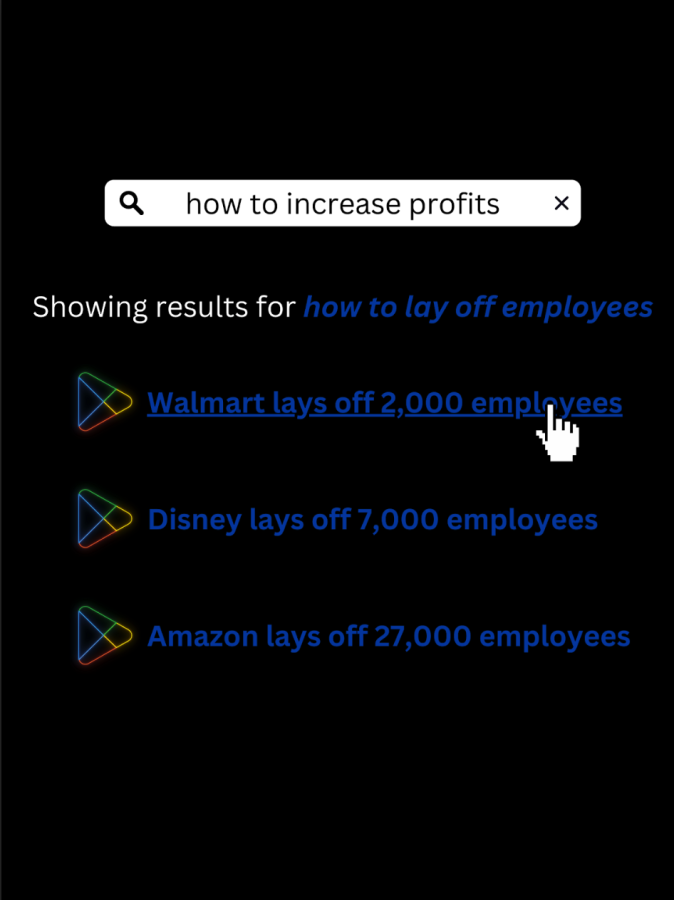On Jan. 20, tech giant Google laid off over 12,000 workers. This year has seen massive layoffs from multiple companies, including Disney, Walmart and Amazon, which have also announced plans to cut 7,000, 2,000 and 27,000 employees respectively.
There have been over 270,000 layoffs in 2023, almost four times more than there were at this time last year. The tech industry in particular is responsible for most of these, having laid off over 100,000 employees so far, which is almost four hundred times more than it had at this time last year.
These large scale layoffs came as a shock to its workforce. No notice was given, as the layoffs were conducted by email. Employees were left confused and bereft as they noticed that their Google system logins no longer worked.
This mass firing was doubly shocking, since Google has made efforts to distance itself from corporate culture in the past, treating employees like the highly skilled professionals they are. In addition to being paid extremely well, members of Google’s workforce enjoyed privileges such as massages and free gourmet meals while at work.
This type of treatment went well above and beyond the “Don’t be evil” motto that Google prized. However, this motto was removed from Google’s official code of conduct in 2015 when Google became a subsidiary of multinational conglomerate Alphabet, and the company’s morals have only declined since then.
Pleasant Valley business teacher Rita Brown recognizes the upward trend of layoffs that the economy is currently experiencing. “The ultimate goal is to please the shareholder, and there really is no other goal left because of the speed of information. And so when something gets out there, there has to be a quick response,” Brown stated.
And respond Google executives must. Inflation and high interest rates have disincentivized advertisers from spending their money, meaning Alphabet’s net income dropped an astonishing 34% from 2021 to 2022.
Senior and member of Future Business Leaders of America Atharv Neema laments Google’s policy shift. “Today, it seems that companies are more interested in the bottom line than in the well-being of their employees. Rather than investing in their workforce and building long-term relationships, companies are quick to cut costs and lay off employees at the first sign of trouble,” Neema explained.
The growing trend of layoffs doesn’t seem to be slowing down anytime soon. In the meantime, Brown offered advice to those entering the job market. “You’ll always need to have your resume up to date. Prepare for that because you just never know what’s going to happen. We’re all disposable, and the minute that you are let go, the want ad will go up… it’s all about putting your own head on your pillow, how much effort you put into your job. You have to do it for yourself. You don’t do it for the company,” she continued.
The rising number of layoffs stems from a shift in the American economy from competitive capitalism to monopoly capitalism. Where employers once relied on the rapport built between themselves and their employees, many have now become powerful enough to retain a sustainable number of employees even while treating them poorly. If employees nationwide do not recognize this trend and organize against it, the end result could be disaster.









